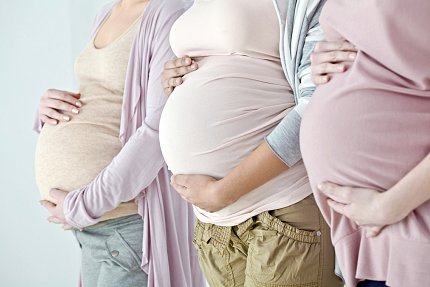Drinking Diet Beverages During Pregnancy Linked to Child Obesity

Children born to women who had gestational diabetes and drank at least one artificially sweetened beverage per day during pregnancy were more likely to be overweight or obese at age 7, compared to children born to women who had gestational diabetes and drank water instead of artificially sweetened beverages, according to a study led by researchers at NIH.
Childhood obesity is known to increase the risk for certain health problems later in life, such as diabetes, heart disease, stroke and some cancers. The study appears online in the International Journal of Epidemiology.
According to the study authors, as the volume of amniotic fluid increases, pregnant women tend to increase their consumption of fluids. To avoid extra calories, many pregnant women replace sugar-sweetened soft drinks and juices with beverages containing artificial sweeteners.
Citing prior research implicating artificially sweetened beverages in weight gain, the study authors sought to determine if diet beverage consumption during pregnancy could influence the weight of children.
“Our findings suggest that artificially sweetened beverages during pregnancy are not likely to be any better at reducing the risk for later childhood obesity than sugar-sweetened beverages,” said study senior author Dr. Cuilin Zhang in the NICHD Epidemiology Branch. “Not surprisingly, we also observed that children born to women who drank water instead of sweetened beverages were less likely to be obese by age 7.”
